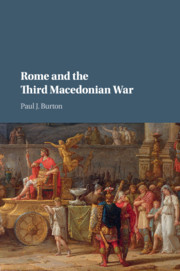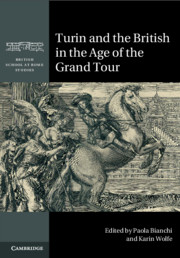Refine search
Actions for selected content:
23989 results in Ancient history
Contents
-
- Book:
- Eurasian Empires in Antiquity and the Early Middle Ages
- Published online:
- 12 October 2017
- Print publication:
- 05 October 2017, pp v-vi
-
- Chapter
- Export citation
Part III - Cultural Legacies of Eurasian Empires
-
- Book:
- Eurasian Empires in Antiquity and the Early Middle Ages
- Published online:
- 12 October 2017
- Print publication:
- 05 October 2017, pp 133-150
-
- Chapter
- Export citation
Part I - Political Organization and Interactions of Eurasian Empires
-
- Book:
- Eurasian Empires in Antiquity and the Early Middle Ages
- Published online:
- 12 October 2017
- Print publication:
- 05 October 2017, pp 1-12
-
- Chapter
- Export citation
Introduction
-
-
- Book:
- Eurasian Empires in Antiquity and the Early Middle Ages
- Published online:
- 12 October 2017
- Print publication:
- 05 October 2017, pp xv-xvi
-
- Chapter
- Export citation
11 - Enclosure Sites, Non-Nucleated Settlement Strategies and Political Capitals in Ancient Eurasia
- from Part IV - Archaeology of Eurasian Empires
-
-
- Book:
- Eurasian Empires in Antiquity and the Early Middle Ages
- Published online:
- 12 October 2017
- Print publication:
- 05 October 2017, pp 251-274
-
- Chapter
- Export citation
5 - Honour and Shame in Han China
- from Part II - Socio-Institutional Aspects of Eurasian Empires
-
-
- Book:
- Eurasian Empires in Antiquity and the Early Middle Ages
- Published online:
- 12 October 2017
- Print publication:
- 05 October 2017, pp 85-109
-
- Chapter
- Export citation
8 - The Serpent from Persia: Manichaeism in Rome and China
- from Part III - Cultural Legacies of Eurasian Empires
-
-
- Book:
- Eurasian Empires in Antiquity and the Early Middle Ages
- Published online:
- 12 October 2017
- Print publication:
- 05 October 2017, pp 153-173
-
- Chapter
- Export citation
Tables
-
- Book:
- Eurasian Empires in Antiquity and the Early Middle Ages
- Published online:
- 12 October 2017
- Print publication:
- 05 October 2017, pp xii-xii
-
- Chapter
- Export citation
9 - Alans in the Southern Caucasus?
- from Part IV - Archaeology of Eurasian Empires
-
-
- Book:
- Eurasian Empires in Antiquity and the Early Middle Ages
- Published online:
- 12 October 2017
- Print publication:
- 05 October 2017, pp 203-204
-
- Chapter
- Export citation
Acknowledgements
-
- Book:
- Eurasian Empires in Antiquity and the Early Middle Ages
- Published online:
- 12 October 2017
- Print publication:
- 05 October 2017, pp xiv-xiv
-
- Chapter
- Export citation
3 - Cimmerians and the Scythians: the Impact of Nomadic Powers on the Assyrian Empire and the Ancient Near East
- from Part I - Political Organization and Interactions of Eurasian Empires
-
-
- Book:
- Eurasian Empires in Antiquity and the Early Middle Ages
- Published online:
- 12 October 2017
- Print publication:
- 05 October 2017, pp 34-59
-
- Chapter
- Export citation
2 - Tang China’s Horse Power: the Borderland Breeding Ranch System
- from Part I - Political Organization and Interactions of Eurasian Empires
-
-
- Book:
- Eurasian Empires in Antiquity and the Early Middle Ages
- Published online:
- 12 October 2017
- Print publication:
- 05 October 2017, pp 15-33
-
- Chapter
- Export citation

Rome and the Third Macedonian War
-
- Published online:
- 29 September 2017
- Print publication:
- 12 October 2017

Turin and the British in the Age of the Grand Tour
-
- Published online:
- 28 September 2017
- Print publication:
- 21 September 2017
-
- Book
- Export citation
Chapter 15 - Jews and Commerce
- from Part II - Emancipation:
-
-
- Book:
- The Cambridge History of Judaism
- Published online:
- 21 September 2017
- Print publication:
- 28 September 2017, pp 390-413
-
- Chapter
- Export citation
Chapter 3 - Poland
- from Part I - History and Geography
-
-
- Book:
- The Cambridge History of Judaism
- Published online:
- 21 September 2017
- Print publication:
- 28 September 2017, pp 43-74
-
- Chapter
- Export citation
Chapter 9 - Israel
- from Part I - History and Geography
-
-
- Book:
- The Cambridge History of Judaism
- Published online:
- 21 September 2017
- Print publication:
- 28 September 2017, pp 221-256
-
- Chapter
- Export citation
Chapter 38 - Orthodoxy and Ultra-Orthodoxy as Forces in Modern Jewish Life
- from Part IV - Jews in the Modern World
-
-
- Book:
- The Cambridge History of Judaism
- Published online:
- 21 September 2017
- Print publication:
- 28 September 2017, pp 1017-1037
-
- Chapter
- Export citation
Introduction
-
-
- Book:
- The Cambridge History of Judaism
- Published online:
- 21 September 2017
- Print publication:
- 28 September 2017, pp x-x
-
- Chapter
- Export citation
Chapter 10 - Jews and the Modern State
- from Part II - Emancipation:
-
-
- Book:
- The Cambridge History of Judaism
- Published online:
- 21 September 2017
- Print publication:
- 28 September 2017, pp 289-290
-
- Chapter
- Export citation
